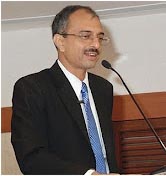Amit Trivedi does some crystal ball gazing and predicts the trends for 2013.
Every time the
New Year demands two things:
1. New Year Resolutions
2. Crystal ball gazing – predicting how the year would look like
So this year, I decided to look into the crystal ball to see what 2013 holds for the investment advisors and mutual funds.
Well, in the winter days, especially early January, the crystal ball is a bit hazy, like a Delhi morning during this time. Hence, we cannot see everything with full clarity, but still certain things are quite clear. We expect the following drivers to lead the change in 2013:
· Regulations
· Customer preferences
· Technology
· Competitive forces
Regulations
The regulators have been on an overdrive in the last few years changing the way the business is conducted. One of the major changes pending regulatory approval is the Investment Advisor Regulations. The same is expected to be a reality, although in a diluted form.
The regulator has also moved in a way to make the advisory business a viable alternative. With the introduction of the “direct” plan, the onus is on the advisor to demonstrate the “value-added” to the investor. At the same time, the introduction of “direct” plan allows an advisor to charge fees, as may be mutually agreeable.
What happened in the last year was something dramatic. In the last five years, digressing from the global trend, SEBI increased the expenses to the customer – this is arguably the first (and probably the only) instance across the world since 2008-09. The focus on growth in the markets beyond top 15 should help penetration.
Common KYC has proved to be a difficult change in the recent months. Given that we have common KYC across the securities markets, no further changes (read: difficulties) are expected. However, if KYC becomes common across all financial markets, there could be some further changes leading to further discomfort.
Financial Sector Legislative Reforms Committee (FSLRC) submitted its report almost six months ago. The recommendations indicate some major changes. Let us see if we make any progress on the suggested lines.
Ditto for DTC. We have been waiting for the same for quite some time. We will wait further to see if DTC sees the light of the day in 2013.
The crystal ball is not clear whether there would be any further regulatory changes
One wish: In the recent past, we saw turf battle among the financial sector regulators. The bigger fight is outside the regulatory ambit. I wish that in 2013, all the financial sector regulators get together to fight the unregulated markets and players. There is a bigger enemy in all the ponzi schemes, the MLMs, unregistered chit funds, art funds, rare coins and stamps kind of investment products. More money is lost by common men in these schemes put together as compared to their losses in the regulated financial markets though the noise is louder when it comes to the latter.
Customer preferences
In the last few years, considering the poor performance of the equity market, sustained high levels of interest rates, and the rally in prices of physical assets the customer preference has shifted against equity as an asset class. The same is less likely to change in a hurry, except for a sharp and steep Bull Run. Once again, due to the haze in the crystal ball, the exact date for the Bull Run is invisible J. In fact, it is not clear whether the Bull Run starts in 2013 or later.
Technology
The third element, technology, is probably moving faster than the regulations. The way the electronic screens have become smaller and closer to our eyes is simply amazing. Technological platforms may soon be reality for the mutual funds. A combination of “discussions on costs” and “use of technology” may see equity ETFs garnering higher share of the investor’s portfolio. Widespread use of technology may also see reduction in several costs of transactions and customer service. The downside of technology is that it makes transactions very fast, economical and efficient; but it does not help train the investor mindset to hold onto the investments for long term.
Competitive forces
Finally, competitive forces will ensure that the customer gets better choice – well, this is another of my wishes.
What should an advisor do? Well, keep the client interest at the centre of each of your strategy and decisions.
Now that we are past the feared deadline as set by the Mayans, let us look forward to brighter days ahead. Wish you all a wealthy 2013 and beyond.
As always,
this time too, tough times will not last, only tough people will.
This article is copyright of Karmayog Knowledge Academy. The author is owner of Karmayog Knowledge Academy. He can be reached at amit@karmayog-knowledge.com.



